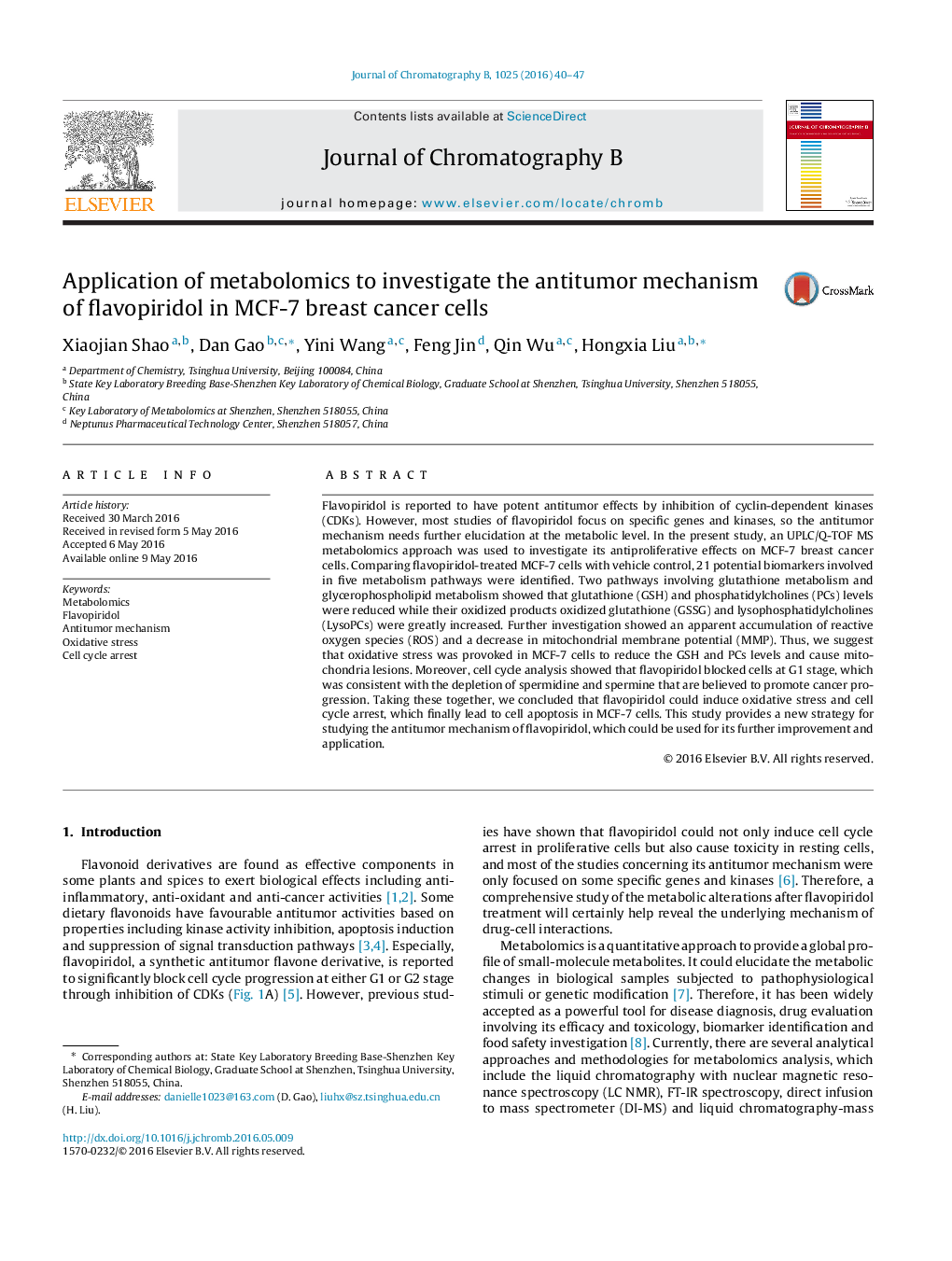| کد مقاله | کد نشریه | سال انتشار | مقاله انگلیسی | نسخه تمام متن |
|---|---|---|---|---|
| 1211908 | 1494031 | 2016 | 8 صفحه PDF | دانلود رایگان |

• For the first time, an UPLC/Q-TOF MS based metabolomics technique was performed to investigate the antitumor mechanism of flavopiridol.
• 21 distinct metabolites in MCF-7 cells were found to be disturbed after flavopiridol treatment.
• The anti-proliferative mechanisms of flavopiridol were proposed as the oxidative stress and cell cycle arrest by analysis of the disturbed pathways and biological indexes.
• The metabolomics approach provides a new method for further improvement and application of flavopiridol and its derivatives.
Flavopiridol is reported to have potent antitumor effects by inhibition of cyclin-dependent kinases (CDKs). However, most studies of flavopiridol focus on specific genes and kinases, so the antitumor mechanism needs further elucidation at the metabolic level. In the present study, an UPLC/Q-TOF MS metabolomics approach was used to investigate its antiproliferative effects on MCF-7 breast cancer cells. Comparing flavopiridol-treated MCF-7 cells with vehicle control, 21 potential biomarkers involved in five metabolism pathways were identified. Two pathways involving glutathione metabolism and glycerophospholipid metabolism showed that glutathione (GSH) and phosphatidylcholines (PCs) levels were reduced while their oxidized products oxidized glutathione (GSSG) and lysophosphatidylcholines (LysoPCs) were greatly increased. Further investigation showed an apparent accumulation of reactive oxygen species (ROS) and a decrease in mitochondrial membrane potential (MMP). Thus, we suggest that oxidative stress was provoked in MCF-7 cells to reduce the GSH and PCs levels and cause mitochondria lesions. Moreover, cell cycle analysis showed that flavopiridol blocked cells at G1 stage, which was consistent with the depletion of spermidine and spermine that are believed to promote cancer progression. Taking these together, we concluded that flavopiridol could induce oxidative stress and cell cycle arrest, which finally lead to cell apoptosis in MCF-7 cells. This study provides a new strategy for studying the antitumor mechanism of flavopiridol, which could be used for its further improvement and application.
Journal: Journal of Chromatography B - Volume 1025, 1 July 2016, Pages 40–47